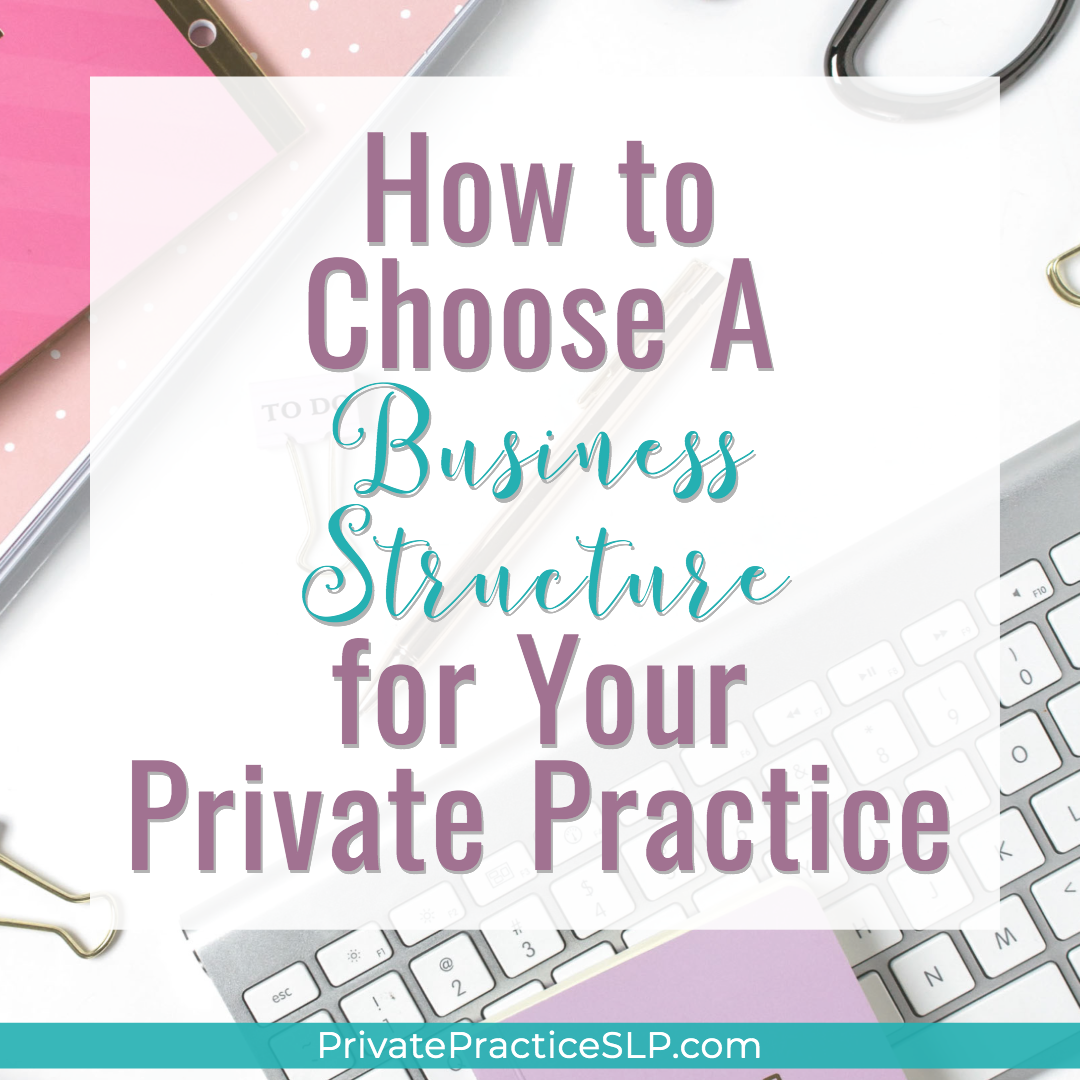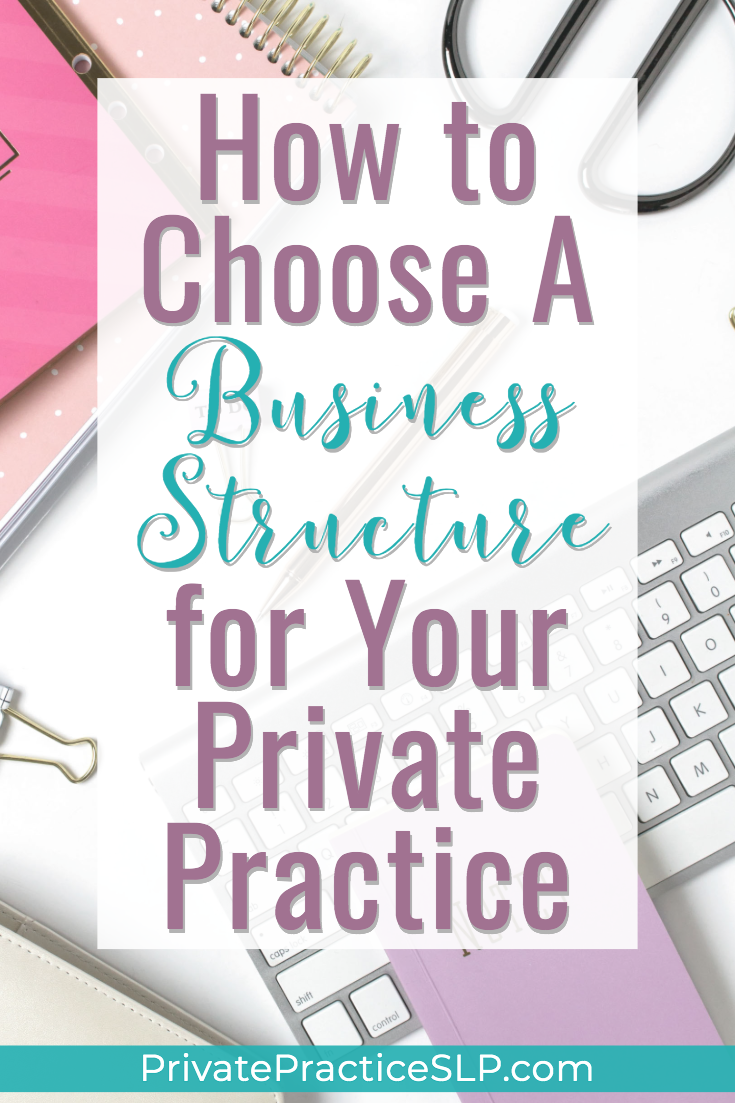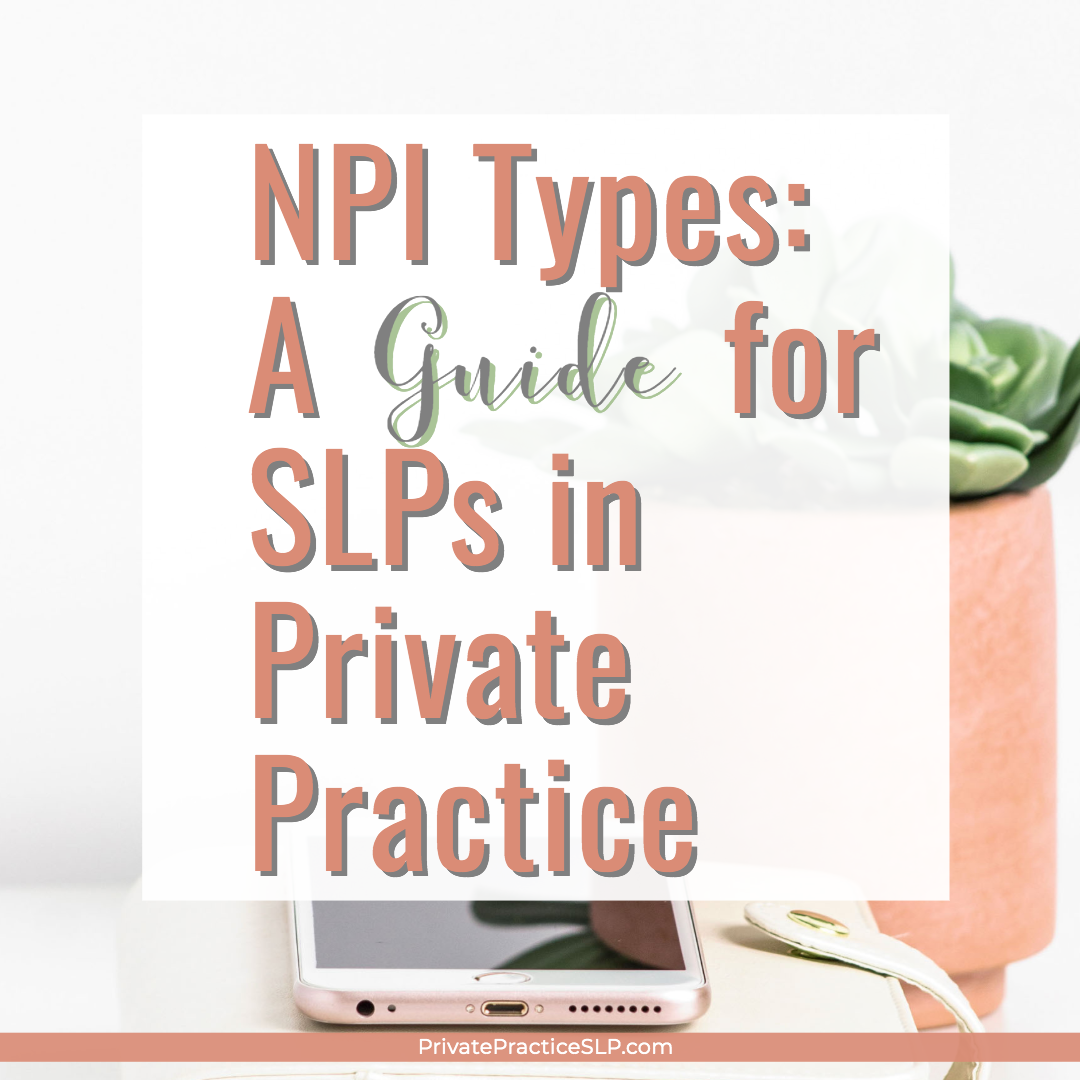Choosing a Business Structure for Your Private SLP Practice
One of the first questions many SLPs ask when they are starting their private practice is, "Should I be an LLC?" That question really means, "What business type should I set up for my private SLP practice?" Like most legal-type questions, the answer can be state-dependent, but I created a guide to help you decide on the best business type for your specific private practice.
First, to clarify: business types are not the same as tax structures. In many cases, you can choose a business type for your private practice (i.e. an LLC) and choose to be taxed as a different structure (i.e. a corporation). The basic business types are:
Sole Proprietor (Independent Contractor)
LLC
Partnership
Corporation: S-Corp or C-Corp
In order to decide which one is best for your business, ask yourself these questions:
Do I want to become a public company someday?
Do I want a partnership now or employees later?
Do I need a loan to set up my clinic?
After you answer those questions, you can choose which business type might work best for you. Here is a guide to each type.
Types of Business Structures
Sole Proprietor (Independent Contractor)
Definition: An unincorporated business with one owner
If you don't file to be any other sort of business structure, you are by default a sole proprietorship
Business assets are taxed on your personal income tax (it's known as a “Pass through entity”- business taxes "pass through" to your personal taxes)
This structure is less desirable for investors if you need a startup loan
You must fill out a 1099-MISC form for anyone you pay $600 or more to (health insurance, rent, etc)
You will still need to register with your city even if you are doing business under your own name
LLC (Limited Liability Corporation)
Definition: An entity with characteristics of both a partnership & sole proprietorship
Your business assets are separate from your personal assets (unlike sole proprietorships and partnerships). This means that if someone sues your business, they are not able to demand your personal assets.
You file taxes on your personal tax forms (Form 1040, Schedule C)
Some states limit LLC life to 30 years
Some states require 2+ members (like NY and CA)
Some states do not allow licensed professionals to form an LLC
Some states require annual dues
As I mentioned before, some states allow you to choose to tax your LLC as a corporation, in order to maximize your business benefits. You will need to check with your state for more information.
Partnership
Definition: An unincorporated business with two or more owners
General Partnership
Similar to being a sole proprietorship except this partnership has 2+ owners
Limited Partnership
A partnership with 1 general partner who runs the business & 1 limited partner who contributes financially but is not personally liable for debts
Limited Liability Partnership (LLP)
This is allowed in some states. All owners have limited personal liability.
Partnerships are a good choice if you need investors
Remember that you are personally legally responsible for taxes and liabilities
Corporation
Definition: A legal structure with 1 or more shareholders that exists as a separate legal entity from the owners/shareholders
C-Corp: a regular corporation that must have officers, directors, and meetings
S-Corp: a corporation for which the business profits “pass through” to the owner (similar to an LLC but with more regulations)
In both cases, your personal assets are protected from your business assets
Requires an attorney to file to become this
There are many fees like franchise fees, filing fees, etc.
You are taxed on your profits AND the dividends to shareholders (if you have shareholders)
That's a rundown of the basic business types. Some states have different types (like the Professional Service Corporation in NY), and each state has slightly different requirements and regulations (because why make it simple?) To find the information for your state, check Google ("Business structures in [my state]" is a good place to start).
And of course- I am NOT a tax or legal professional- this is not intended as professional legal or tax advice, and you should always confer with your lawyer or CPA before making any major business or legal decisions.
If you want more information on business structures, here are some excellent resources (Amazon Affiliate links included. Disclosure here):
Choosing A Business Structure from the Small Business Administration
Entrepreneur’s Guide to Starting and Growing a Business in PA from the PA Department of Community and Economic Development
The Women's Small Business Start-Up Kit, A Step-by-Step Legal Guide by NOLA (great info for men too! )
If you want even more information, as well as a comparison chart of the business structures and more links to resources for SLPs, check out my step-by-step course, Private Practice Foundations. It has everything you need to start and maintain your private SLP practice, with links, resources, and videos!






